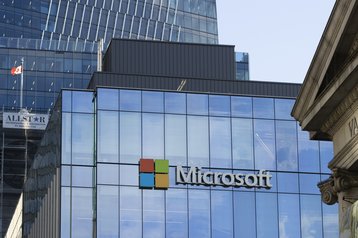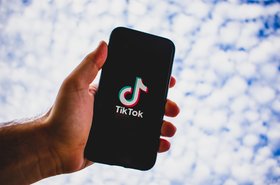Microsoft's 2025 Q2 financial earnings beat overall sales estimates but failed to impress investors.
The company's shares fell by 4.5 percent in after-hours trading following the quarterly report.
Revenue in Microsoft's 'Intelligent Cloud' segment was $25.5 billion for the quarter, an increase of 19 percent year-over-year (YoY). Within that, server products and cloud services revenue increased by 21 percent (Azure) and other cloud services grew 31 percent.
“This quarter Microsoft Cloud revenue was $40.9 billion, up 21 percent YoY,” said Amy Hood, executive vice president and chief financial officer of Microsoft. ”We remain committed to balancing operational discipline with continued investments in our cloud and AI infrastructure.”
For comparison, revenue for Microsoft Cloud overall in the previous quarter was $38.9bn, while Microsoft's Azure and other cloud services revenue grew 33 percent (34 percent in constant currency).
During the Q&A portion of the earnings call, Morgan Stanley's Keith Weiss said: "[It's] another really solid quarter when it comes to commercial bookings, but we were a little bit disappointed on Azure coming in at the bottom end of the guidance range."
CFO Amy Hood responded to Weiss, stating that Microsoft was working from a "pretty capacity-constrained place," suggesting that once the heavy capex period is over, this will improve.
"You have to have a space, which I generally call long-lived assets. That’s the infrastructure and the land. And then you have to have kits. We’re continuing, and you’ve seen that’s why our spend has pivoted this way to be in the long-lived investment. We have been short [of] power and space. And so, as you see, those investments land that we’ve made over the past three years, we get closer to that balance by the end of this year."
Capital expenditures remained high at $22.6bn for the quarter, up from $20bn the previous quarter. Hood noted that capex is expected to remain similar in the next two quarters as well.
Microsoft CEO Satya Nadella noted that the annual revenue run rate for Microsoft's AI business - a big driver of high capex - was now $13 billion, an increase of 175 percent YoY and up from $10bn during the previous quarter.
Nadella was also keen to focus on the company's improved efficiency with AI. "We ourselves have been seeing significant efficiency gains in both training and inference for years now. On inference, we have typically seen more than 2x price-performance gain for every hardware generation, and more than 10x for every model generation due to software optimizations. And, as AI becomes more efficient and accessible, we will see exponentially more demand."
This is unsurprising, given how Chinese AI company DeepSeek's cheaply-trained model caused tech shares to slump, and brought into question the massive amounts of investment that have gone into AI, and are continuing to be made.
"We are working super hard on all the software optimizations - not just the optimizations that have come because of what DeepSeek has done, but all the work we have done to reduce the prices of GPT models over the years in partnership with OpenAI," Nadella added.
Despite this, Nadella was clear that Microsoft would continue to invest in its data centers and hardware.
"Azure is the infrastructure layer for AI. We continue to expand our data center capacity in line with both near-term and long-term demand signals. We have more than doubled our overall data center capacity in the last three years. And we have added more capacity last year than any other year in our history.
"Our data centers, networks, racks, and silicon are all coming together as a complete system to drive new efficiencies to power both the cloud workloads of today and the next-gen AI workloads. We continue to take advantage of Moore’s law and refresh our fleet, as evidenced by our support of the latest from AMD, Intel, and Nvidia, as well as our first-party silicon innovation from Maia, Cobalt, Boost, and HSM," Nadella said.
The company previously announced plans to spend $80bn on AI data centers this year alone.
Nadella added that soon customers will be able to run DeepSeek's R1 distilled models locally on its Copilot+ PCs as well as Microsoft's GPUs.
Commercial bookings - new contracts with large customers - were up YoY by 67 percent, which according to Microsoft's VP of investor relations Brett Iverson was largely-driven by large Azure contracts with OpenAI.
Following the recent $500bn "Stargate" data center initiative announced by OpenAI, Microsoft is no longer the AI company's exclusive cloud provider though retains the "right of first refusal (ROFR)" and "to further support OpenAI, Microsoft has approved OpenAI’s ability to build additional capacity, primarily for research and training of models."
Speaking on this during the earnings call, Nadella said: "We remain very happy with the partnership with OpenAI... they've committed in a big way to Azure."
Nadella added: "Their success is our success."
Total revenues for Microsoft rose 12 percent to $69.6 billion, and the company had a profit of $3.23 per share, beating expectations of $3.11 per share.







